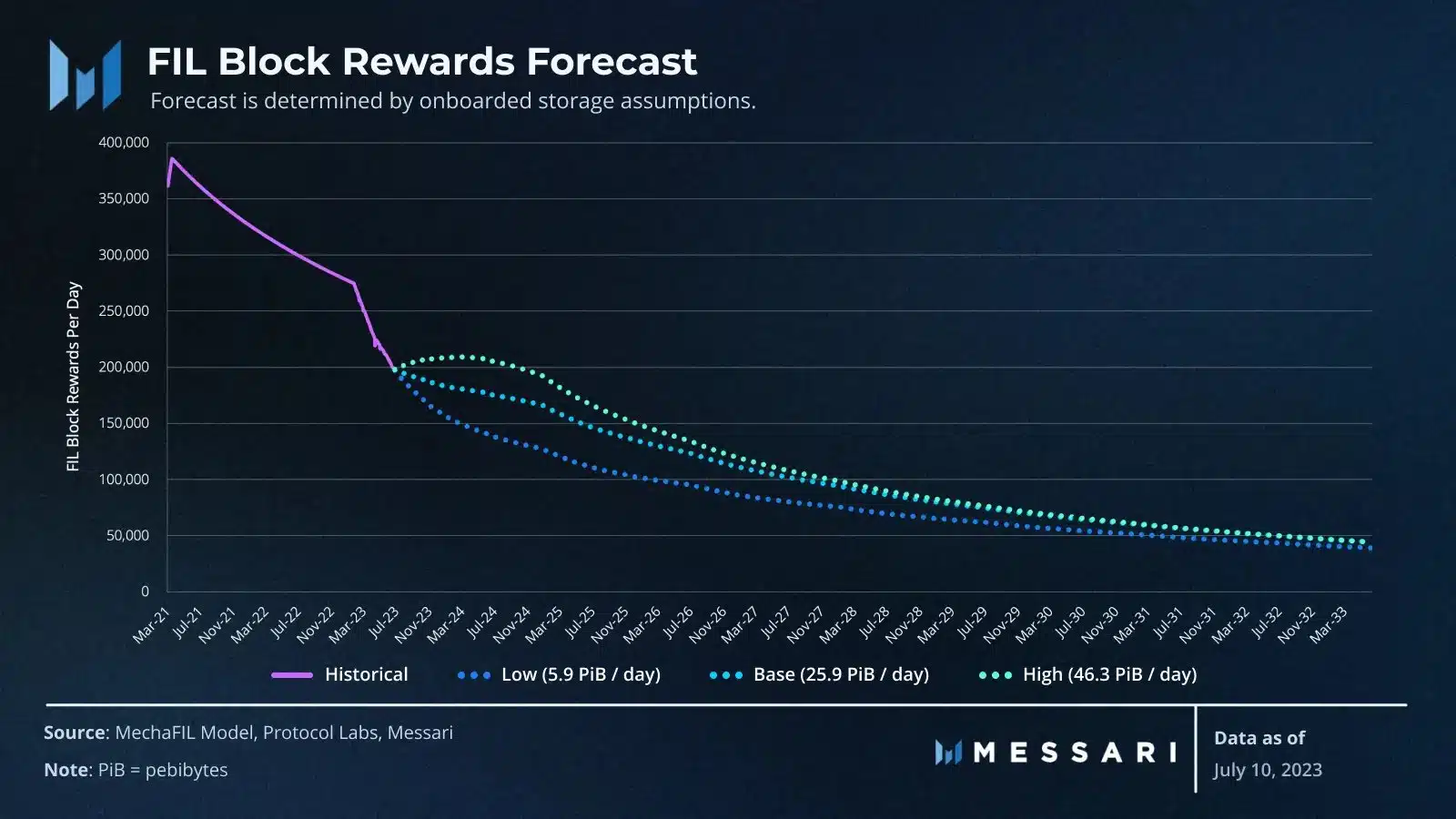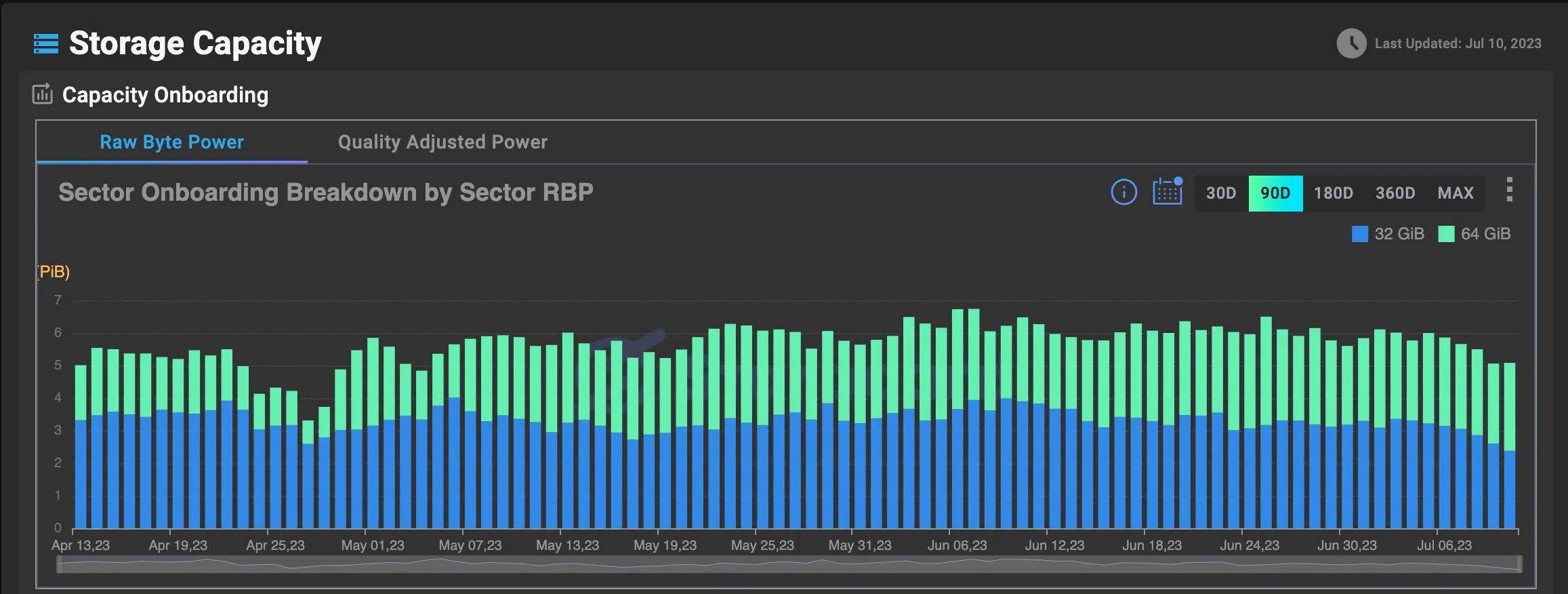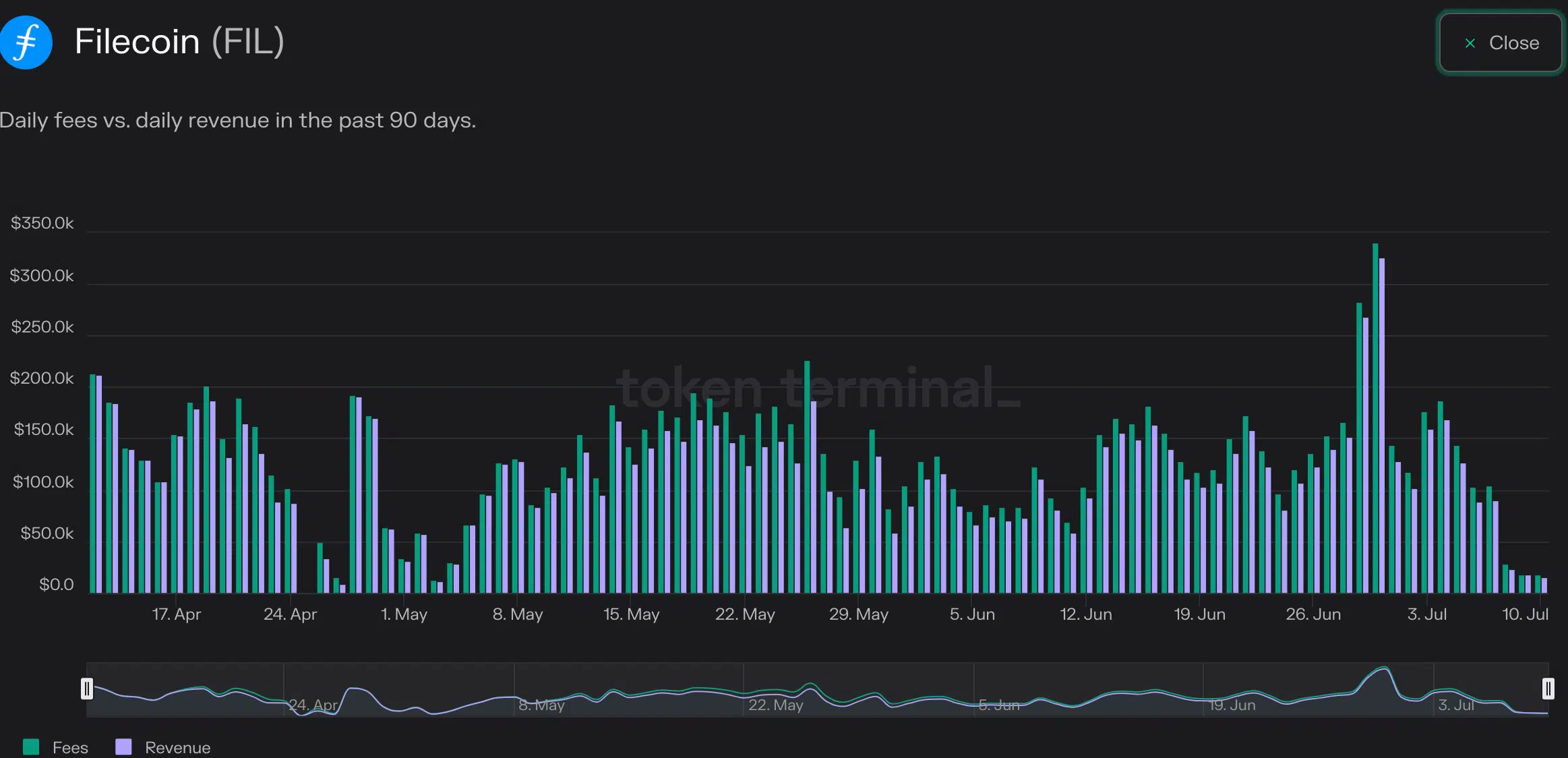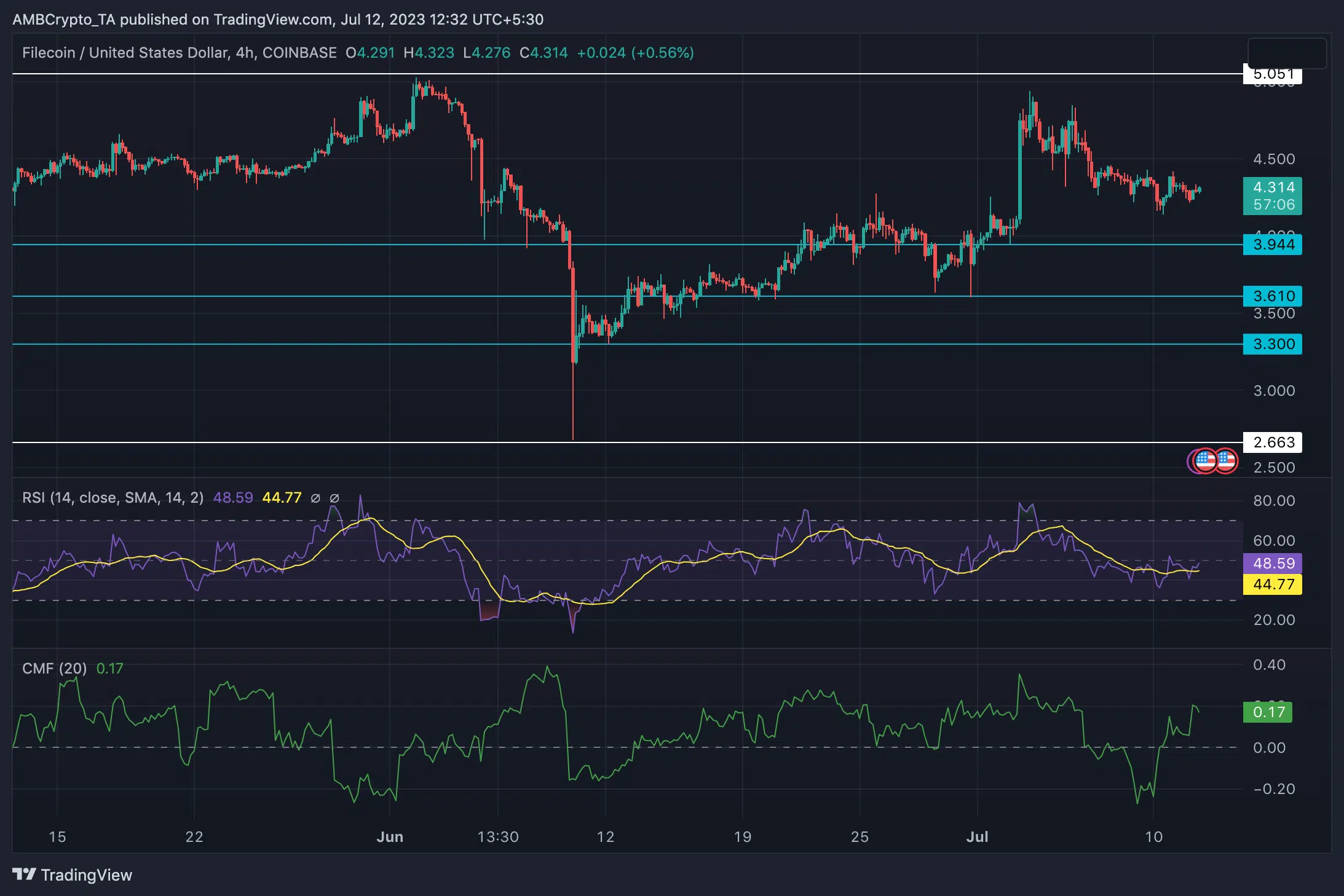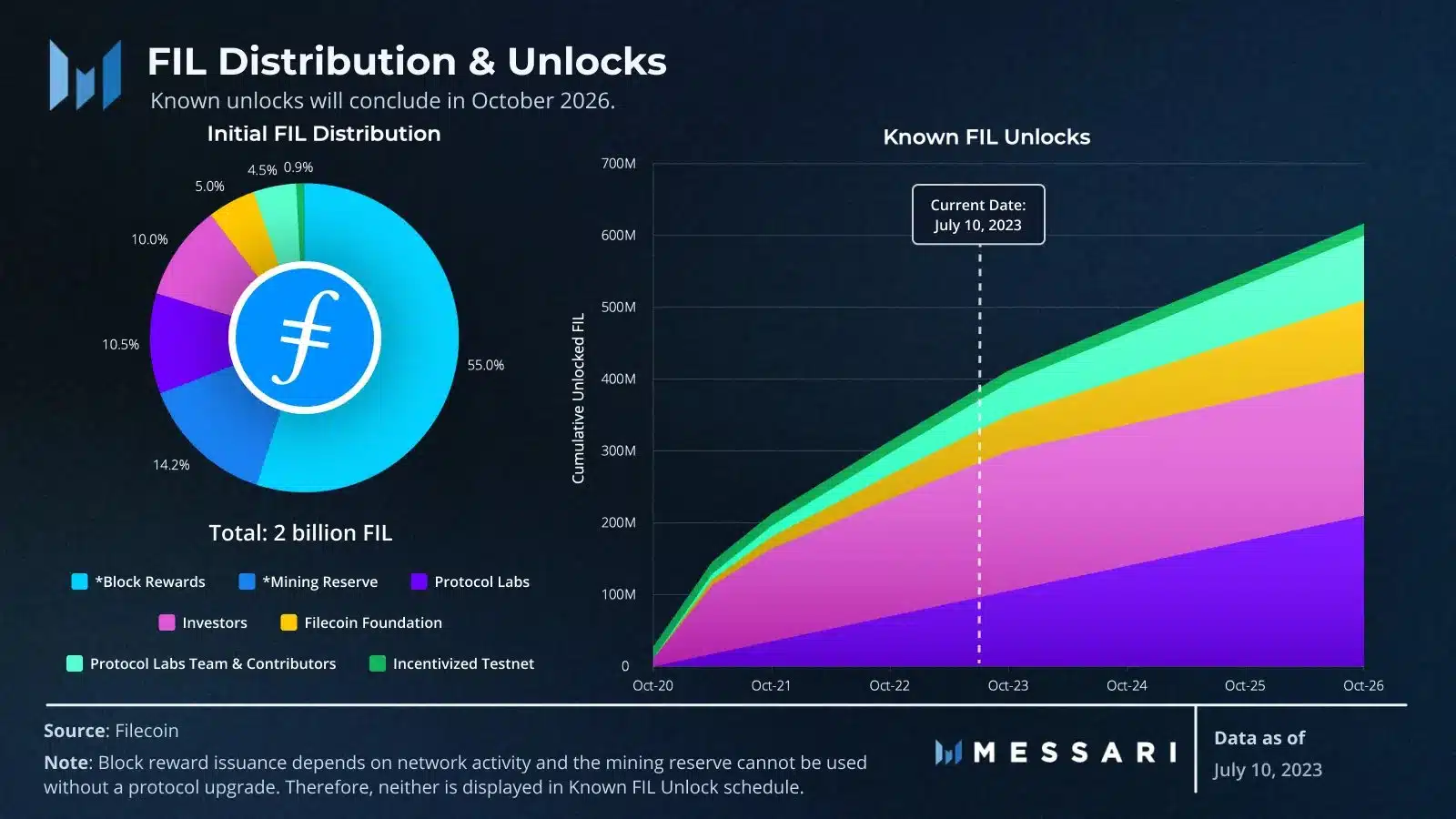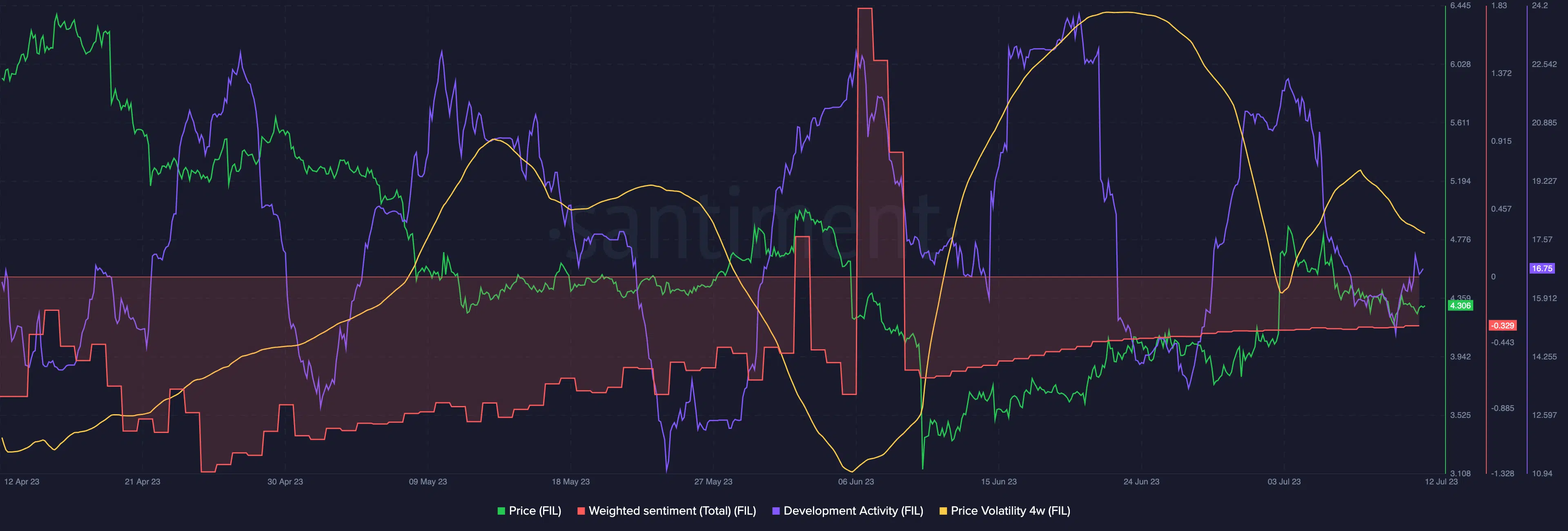Should you place your bets on Filecoin in Q3?

- Despite being affected by SEC’s lawsuit, the state of the Filecoin protocol remained stable in Q2.
- The price of FIL observed some fluctuation, sentiment around the token and protocol continued to decline.
Filecoin[FIL] was significantly impacted by the SEC’s litigations against Coinbase and Binance. However, Filecoin’s overall performance in Q2 remained consistent.
Realistic or not, here’s FILECOIN’s market cap in BTC’s terms
How is the protocol doing?
Filecoin operates as a decentralized data service platform built on the InterPlanetary File System (IPFS). It serves both the storage market’s demand and supply sides. FIL, the native cryptocurrency of Filecoin, plays a vital role as it enables users and applications to access data-related services.
The value of FIL is currently enhanced through mechanisms such as network transaction fee burning and locking. The issuance of new FIL tokens is determined by the storage capacity of the network, with block rewards being provided accordingly. When the network’s storage capacity is below a certain level, the emission rate of FIL increases as more storage capacity is added. Conversely, when the network’s storage capacity surpasses the baseline, the emission rate of FIL decreases.
Over the last quarter, it was seen that the storage capacity for Fileccoin remained stable according to Starboard’s data. Since April, the storage capacity for FileCoin has fluctuated between 5.05 PiB(pebibytes) and 6.14 Pib.
The faults in our protocol
Another metric that should be evaluated while looking at FileCoin would be the faults occurring on the Filecoin network. A fault is what happens when participants in the protocol are behaving incorrectly and that behavior needs to be punished. The types of faults on the protocol range from Consensus Faults, Market Faults and Breaches of contracts.
In the latter half of April, the number of Daily Active Faults on the network had surged materially. However, in the following months, the number of active faults on the network declined signaling growth in terms of storage service reliability.
Both Web2 and Web3 storage contribute to the demand for Filecoin. The demand for Filecoin can be measured by looking at the amount of data stored in active storage deals between users and providers on the Filecoin network. For context, users can store data in and retrieve data from the Filecoin network via deals. Participants in the network, miners (supply-side) and clients (demand-side), interact with each other via storage deals and retrieval deals.
Over the last quarter, the number of total active deals on the FileCoin protocol witnessed significant growth. At press time, Filecoin had stored more than 1,218.17 PiB through active deals.
Due to the rising number of deals on the protocol, the fees collected by FilecCoin and the subsequent revenue generated by the protocol surged. According to token terminal’s data, the fees and revenue generated by Filecoin grew by 33.2% and 34.2% respectively over the last quarter.
Bears vs Bulls
Coming to the FIL token, it was trading at $4.309 at press time. After testing the $5.01 resistance level on 2 June, FIL’s price declined by an alarming 45.99%. Since then, the prices recovered significantly and established a bullish trend. The price observed some correction after 3 July; however, the price wasn’t able to test or break past the previous higher low of $3.94.
In the coming weeks, if FIL manages to test and weaken the $5.01 resistance levels yet again, there may be chances of a breakout. However, the RSI for the FIL token was at 48.12, indicating that the price momentum of FIL favored the bears. On the other hand, the CMF was relatively high at 0.17 suggesting that the money flow for FIL was with the bulls.
Future token unlocks can also impact the price of FIL in the future. Based on Messari’s data, FIL tokens that have been vested are gradually released into circulation according to the vesting schedule. Notable unlocks include the 600M FIL allocated for investors, the Filecoin Foundation, and Protocol Labs & team.
The current cryptoeconomic specifications indicate that the FIL mining reserve is currently inactive. This suggests that the mining process is not actively adding new FIL tokens to the circulating supply at the moment.
During vesting periods where these tokens are distributed, there is a possibility of increased selling pressure on FIL due to the rise in supply of FIL in the market.
Is your portfolio green? Check out the FileCoin Profit Calculator
Public sentiment
Despite the positive growth observed by the FileCoin protocol, the sentiment around it remained pessimistic. According to Santiment’s data, the weighted sentiment for FileCoin remained overwhelmingly negative for the most part of Q2. This suggested that public perception around FileCoin remained negative for the protocol and the token over the last quarter.
The development activity for the protocol saw its ups and downs throughout the quarter. However, over the last few weeks, it declined significantly, implying that there may be no new updates to be expected on the protocol anytime soon.

